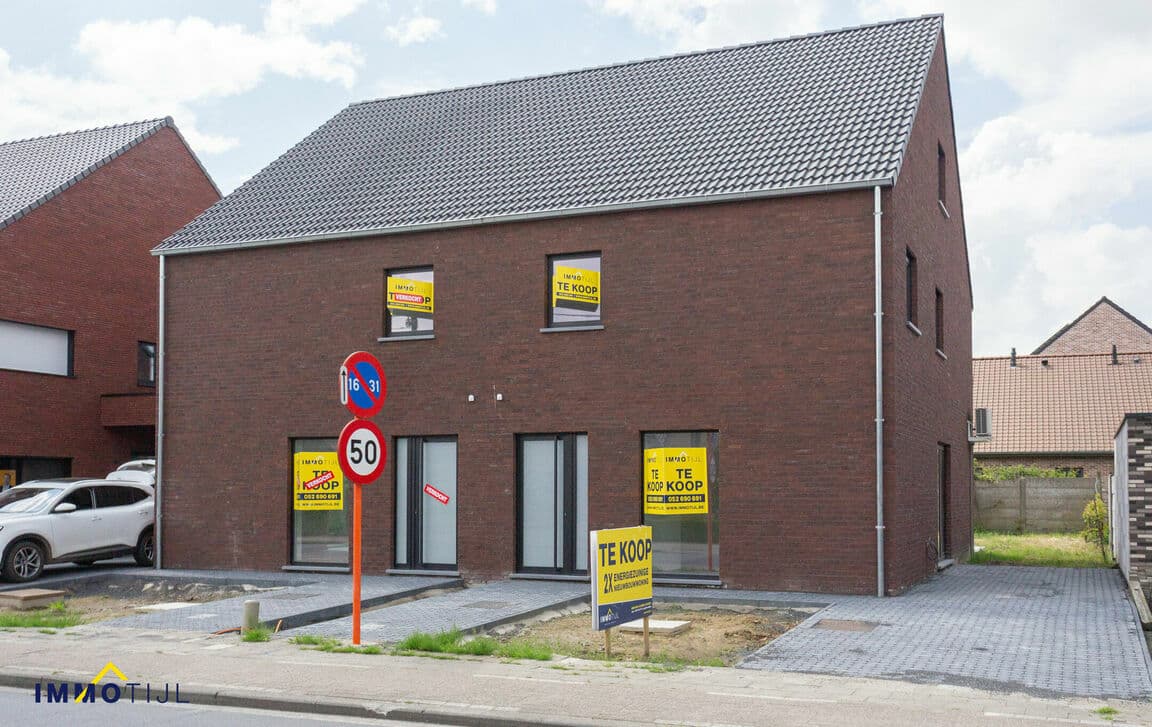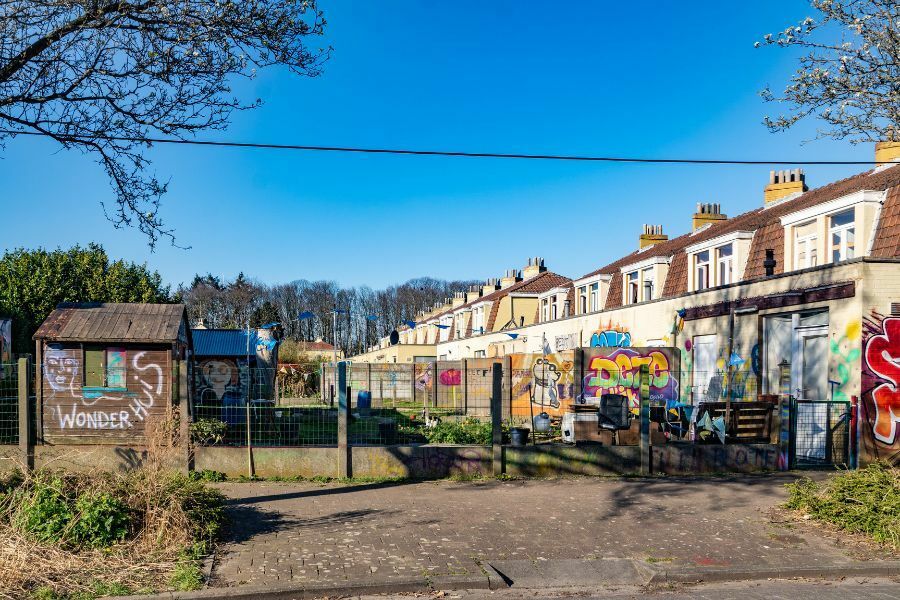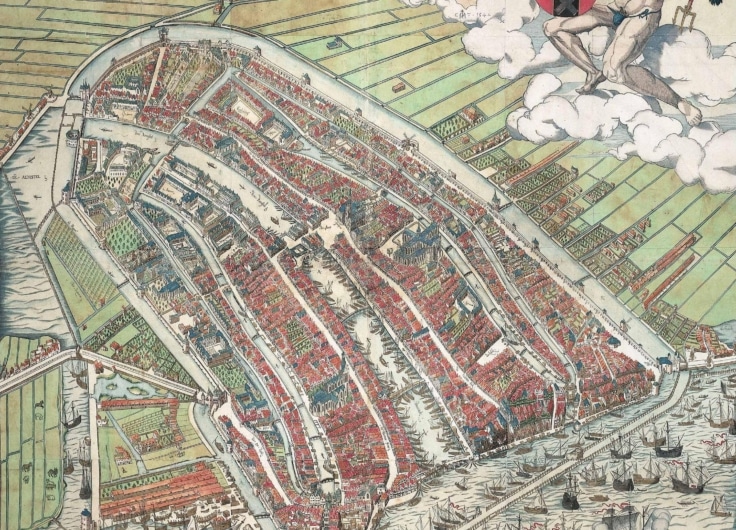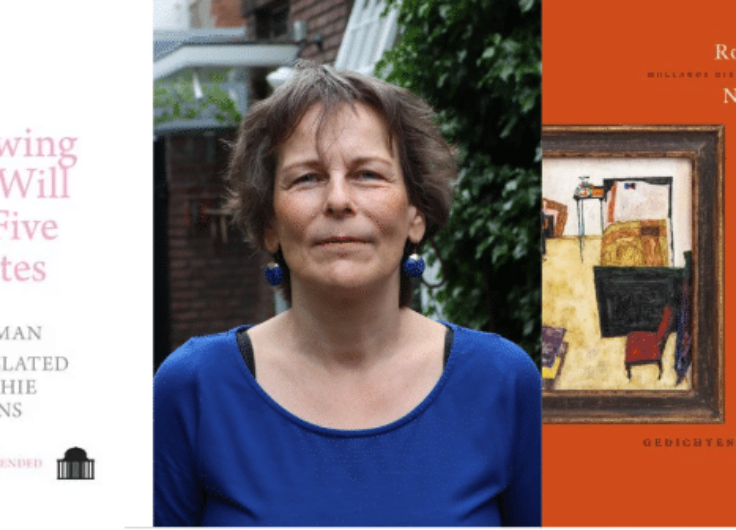Dutch and Looking for a Home? Find Yourself a Flemish Partner
Finding a place to live in Flanders may be expensive and time-consuming, but the Flemish housing market is a marvel of accessibility compared to its Dutch counterpart. That’s the experience of Anouk van Kampen, a former Belgium correspondent for the Dutch newspaper NRC, who has made Ghent her home.
The whole house? A friend from the Netherlands is gazing up at the façade of my new home in Ghent. She’s gobsmacked. Yes, really, the whole house is ours. We don’t have a lodger, I still have both my kidneys and I didn’t even need a ‘rich boyfriend’, as Dutch Housing Minister Hugo de Jonge, from the conservative CDA party, recently advised a young woman who’d been unable to find accommodation. A regular boyfriend was enough. The friend looks as though I’ve won the lottery. You’d almost forget about the outstanding mortgage.
After seven years in Belgium, I’m also still amazed that an average earner like me can ‘simply’ find a house. We had to brave dozens of overcrowded viewings with couples just like us and on eight occasions we were outbid by tens of thousands of euros, but if you’ve ever lived in Amsterdam you begin to see accommodation as a luxury. While there, I moved house ten times in the space of twelve years. Property guardianship, sublets, student digs, social housing for young people: the string of temporary contracts brought me to a rental property that cost me half my monthly salary, and still, I counted myself lucky. Buying a house never even entered my mind.
 Anouk van Kampen: 'In Belgium, you go to university, live in student halls, find a job, rent, save and ultimately buy a home'
Anouk van Kampen: 'In Belgium, you go to university, live in student halls, find a job, rent, save and ultimately buy a home'© Immotijl
My move to Belgium brought a sudden end to the pleading with housing associations, the many Facebook appeals, the hope that a friend’s affluent family might help out, or some other small miracle. In Brussels, I had my pick of homes, and the estate agents were lining up to persuade me. When I first came to Ghent, I was able to rent a flat right in the centre of town and now I’m a bona fide homeowner.
My Belgian friends see it as the next logical step when you’ve had your share of good fortune: you go to university, live in student halls, find a job, rent, save and ultimately buy a home. In the Netherlands, that’s a path few can afford, least of all those living below the poverty line. According to the Bureau for Economic Policy Analysis, their number will soon reach one million.
Max out on that distance radius on Tinder
The average rent for a room in shared student accommodation in the Netherlands was more than €530 in 2022. Sometimes the waiting list for digs is longer than the degree course itself, and more and more students are forced to live at home with their parents. The average wait time for social housing is thirteen years, and yet stock has been steadily declining for years.
Politicians are belatedly realising what’s going on, but any laws to try and curb this out-of-control market are slow in coming. Property investors rule the market. On average, Dutch rental properties command more than €1,240 per month and house prices have doubled in the past nine years. In that light, the recent slight drop can hardly be described as positive, least of all for those who’ve just purchased an exorbitantly expensive home that’s now in negative equity.
 Dilapidated social housing building commissioned by the Ghent Society for Cheap Housing on Sint-Bernadettestraat in 1922 and demolished a century later.
Dilapidated social housing building commissioned by the Ghent Society for Cheap Housing on Sint-Bernadettestraat in 1922 and demolished a century later.© Philip Ampe
That’s why I sometimes tell Dutch people: you want a house? Come to Belgium. While I’m not entirely serious, it certainly is the reality for some: in recent years the border region has seen a rise in the number of Dutch people looking for a home in response to the housing crisis in their own country. Perhaps Hugo de Jonge’s next ‘joke’ can allude to a Flemish rather than a rich boyfriend. Max out on that distance radius on Tinder.
So should the Netherlands follow Flanders’ shining example? Well, no. Compared to the dire situation north of the border things here are a little rosier, but still far from ideal.
The cost of university accommodation is expected to increase by anything up to 35 per cent, and while waiting times for social housing may be shorter, it is scarce: around 6 per cent of total housing stock compared to some 30 per cent in the Netherlands. That means that people are at the mercy of the private rental market where, according to several studies, discrimination is rife. Under the pretext of selection, people with a migrant background, on lower incomes or with disabilities are less likely to be invited to viewings by estate agents. Situation testing can help combat this kind of bias, but the Flemish government refuses to introduce it.
Half of all rental properties in Flanders are in a state of disrepair and nearly one-third of tenants struggle to make ends meet after paying their rent
Half of all rental properties are in a state of disrepair and nearly one-third of tenants struggle to make ends meet after paying their rent. But that hasn’t stopped Matthias Diependaele, the Flemish housing minister from the nationalist N-VA party, from planning to funnel money earmarked for social housing into the private sector. Flanders is witnessing the ‘Dutchification’ of the property market, with buyers bidding on homes they’ve not even seen. So while he or she may not have to be rich, you do need that partner – or wealthy parents – to be in a position to buy a house. It will be harder if you’re single.
The Belgian constitution, like its Dutch counterpart, has enshrined in it the right to ‘adequate housing’, while under the Flemish Housing Code everybody has a ‘right to a dignified home’. And yet the number of unhoused people is on the rise, on both sides of the border. The recent electoral results in the Netherlands and the elections in Flanders next month offer politicians the perfect opportunity to take the law seriously again. Look at our northern neighbours: here’s how not to do things.












